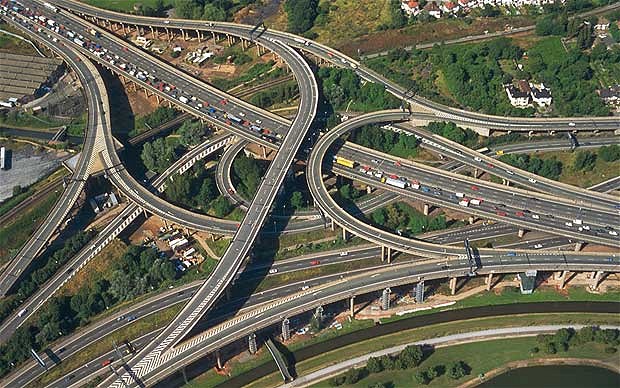One of the major contributors to the Indian Economy has been the booming Infrastructure and Construction sector. The huge increase in the number of Infrastructure projects in the country has simultaneously also seen an increase in the number of the Engineering, Procurement and Construction contracts and agreements which is common contract used in the Infrastructure and the construction industry. It is but natural that increase in the contracts which are very complex in nature, have also led the increase in the number of disputes between the parties.
A large number of disputes and the inherent complexity of the construction disputes makes arbitration the preferred mode of dispute resolution. Most construction disputes distinguish themselves from the other disputes of commercial nature in a number of ways. They are commonly exceptionally large in scope and often involve multiple interested parties (for instance, the authority, the Contractor, the Independent Engineers, and subcontractors) with independent contractual relationships and amounts in dispute reaching into the hundreds of millions of dollars, even eclipsing a billion dollars at times. The timelines of these projects – from initial development through engineering, construction, and commissioning – span years, with key documentation created almost daily. This often leads to an enormous amount of data to be reviewed and evaluated for the purpose of adjudication of disputes.
In the construction industry, a contractor while executing the works faces various problems like delay in handing over of the land/site, delay in shifting of utility, non-timely payment of Running Accounts Bills, non-settlement of disputes by the Authorities, etc. It is also a common problem that while bidding for a project, the Contractor, to win the bid, quotes the most competitive rate. Later on, if the project extends for any reason, the contractor suffers a huge loss as there will be a substantial increase in the prices of materials and resources. Apart from the same, the Contractors also faces problem for not giving proper Notices to the employer for the faults of the employer due to the fear of termination and blacklisting. Sometimes, the employer forces the contractor to give a waiver of certain rights on various pretexts. All these problems lead to disputes, which requires to be adjudicated.
Now, after the amendment of the Arbitration and Conciliation Act, 1996 in 2015, the arbitration pertaining to the construction industry has increased a lot. Providing a fixed timeline for completion of the arbitration has given a boost to arbitration. The amended rules and accepted practices in arbitration are favorable for construction disputes and allow the parties to prepare and present their cases effectively. Another added advantage of having arbitration as the preferred method of dispute resolution is due to the reason that the arbitrator can encourage the settlement of the dispute between the parties at any stage of the arbitration, the terms of which can be recorded in an award of the tribunal and be enforceable as a decree of the court.
Further parties also prefer arbitration as the preferred mode because of the fact that the enforceability of the arbitration award is on a near-worldwide basis, as opposed to the more limited recognition of foreign judgments, additionally the finality of the arbitration award which is enforced as the decree of a civil court, as opposed to the various avenues of appeal that exist in litigation which only lead to the delay in adjudication make arbitration the preferred avenue of dispute adjudication in construction contracts. In addition to the aforesaid, the specific expertise of arbitrators in particular subject matter areas and the privacy accorded due to the confidentiality of arbitral proceedings and awards and the time saved in completing the adjudication in a time-bound manner are some of the very specific advantages arbitration enjoys as the preferred mode of dispute adjudication in disputes arising out of commercial contracts in the construction and the infrastructure area.
It is also seen of late that the Indian Judiciary is also taking a very pro-arbitration stances by giving judgments wherein it has limited the scope of judicial interference in the entire arbitration procedure including the very important development of not interfering with the enforcement of the arbitral awards on merits and limiting the scope of public policy in challenging the arbitral awards, which surely augurs well for choosing arbitration as the preferred means of dispute resolution in the construction and infrastructure area. In the case of NHAI vs. SC-RBM-PATI JV[1], the Delhi High Court noted that needless challenges to arbitral awards by public sector undertakings had contributed to menace of “docket explosion” and deprecated the practice, The Court was of the view that these appeals, filed simply because a party had the financial wherewithal to do so, were resulting in wastage of the court’s valuable time.
The Delhi High Court continued its pro-arbitration stance in the case of Jindal ITF Limited vs NTPC[2] wherein the Court for the first time enforced an interim order passed by the Tribunal under section 17 of the Act and accordingly the court directed the other party to pay the amount, ie, Rs. 197.81 crores passed by the Tribunal as interim relief. The approach of the judiciary in interpreting Section 17 of the Act has been appreciative and supportive of parties and ADR mechanisms.
[1] FAO(OS)(COMM)107/201
[2] Jindal ITF Limited vs NTPC OMP [ENF.][COMM.] No. 55 of 2018
by Manoj K Singh, Founding Partner, Singh & Associates and Nilava Bandopadhyay, Senior Partner, Singh & Associates
@EPC World Media






